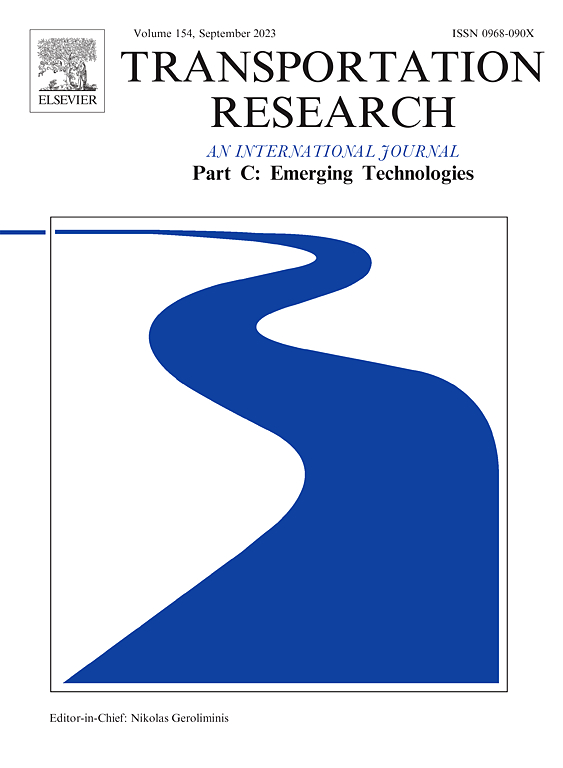基于深度生成机器学习的活动参与与调度综合
IF 7.6
1区 工程技术
Q1 TRANSPORTATION SCIENCE & TECHNOLOGY
Transportation Research Part C-Emerging Technologies
Pub Date : 2025-07-26
DOI:10.1016/j.trc.2025.105273
引用次数: 0
摘要
使用深度生成机器学习方法,我们综合了人类活动的参与和调度;也就是说,选择什么时候参加什么活动。活动时间表是许多应用运输、能源和流行病学模型的核心组成部分。我们的数据驱动方法直接学习由人类偏好和调度逻辑产生的分布,而不需要子模型和自定义规则的复杂交互组合。这使得我们的方法比现有的合成或匿名调度数据的方法更快、更简单。我们还提供了一种新的进度表示和综合评估框架。我们评估了一系列调度编码和深度模型体系结构组合。评估表明,我们的方法可以快速生成大量的、多样的、新颖的、真实的活动时间表合成样本。本文章由计算机程序翻译,如有差异,请以英文原文为准。
Synthesising activity participations and scheduling with deep generative machine learning
Using a deep generative machine learning approach, we synthesise human activity participations and scheduling; i.e. the choices of what activities to participate in and when. Activity schedules are a core component of many applied transport, energy, and epidemiology models. Our data-driven approach directly learns the distributions resulting from human preferences and scheduling logic without the need for complex interacting combinations of sub-models and custom rules. This makes our approach significantly faster and simpler to operate than existing approaches to synthesise or anonymise schedule data. We additionally contribute a novel schedule representation and a comprehensive evaluation framework. We evaluate a range of schedule encoding and deep model architecture combinations. The evaluation shows our approach can rapidly generate large, diverse, novel, and realistic synthetic samples of activity schedules.
求助全文
通过发布文献求助,成功后即可免费获取论文全文。
去求助
来源期刊
CiteScore
15.80
自引率
12.00%
发文量
332
审稿时长
64 days
期刊介绍:
Transportation Research: Part C (TR_C) is dedicated to showcasing high-quality, scholarly research that delves into the development, applications, and implications of transportation systems and emerging technologies. Our focus lies not solely on individual technologies, but rather on their broader implications for the planning, design, operation, control, maintenance, and rehabilitation of transportation systems, services, and components. In essence, the intellectual core of the journal revolves around the transportation aspect rather than the technology itself. We actively encourage the integration of quantitative methods from diverse fields such as operations research, control systems, complex networks, computer science, and artificial intelligence. Join us in exploring the intersection of transportation systems and emerging technologies to drive innovation and progress in the field.

 求助内容:
求助内容: 应助结果提醒方式:
应助结果提醒方式:


